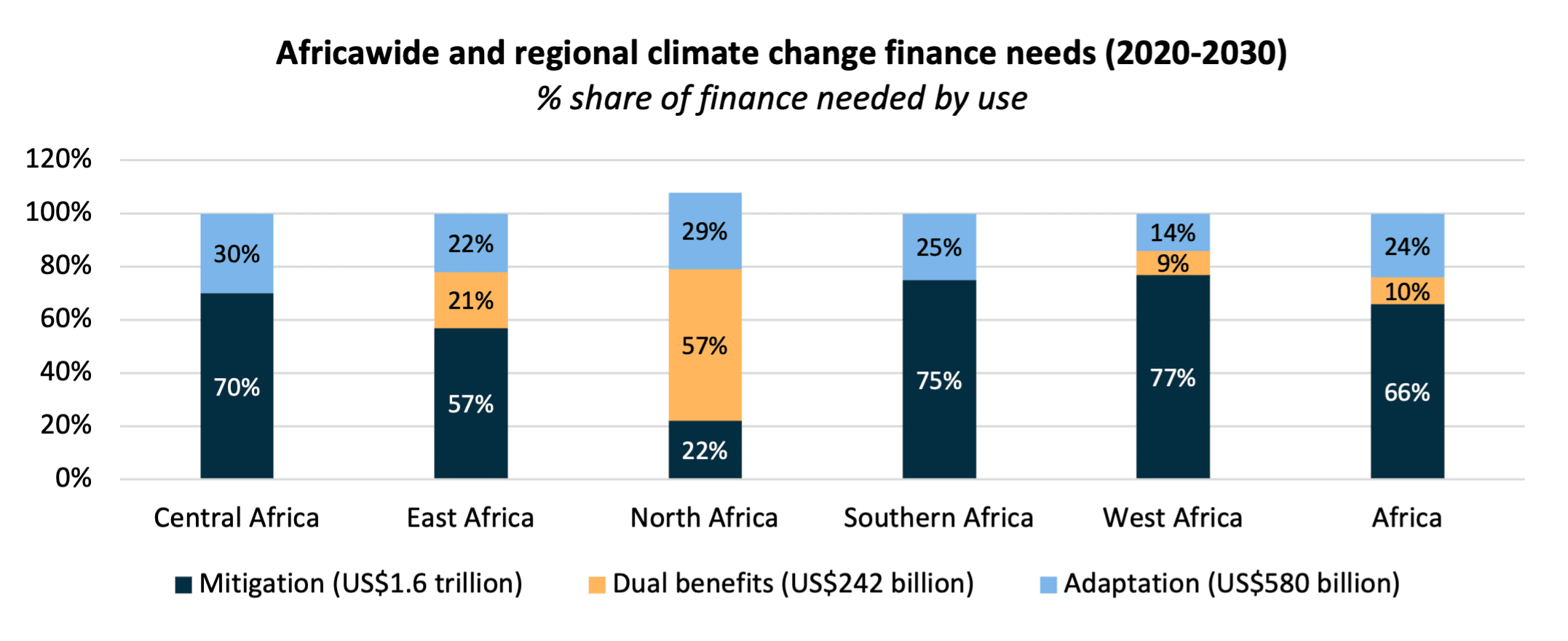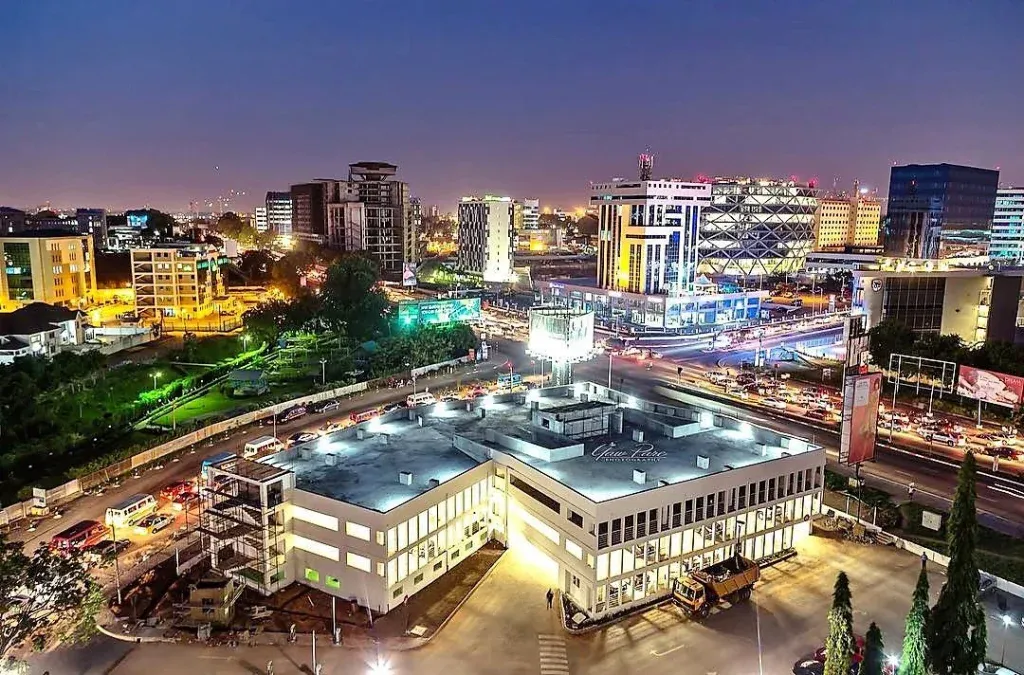In Summary
- Since 2023, Sub-Saharan Africa’s GDP has been driven by services (45%), followed by industries (27%) and agriculture (17%). Small businesses and self-employed entrepreneurs contribute significantly to employment, with 84% of jobs in Africa being driven by them.
- Despite facing multiple challenges, African economies are projected to stabilize at 4% annual growth by the end of 2025.
- Small businesses represent 90% of all businesses in Africa, and Sub-Saharan Africa has 44 million micro, small, and medium enterprises (MSMEs).
- In 2025, Africa’s economic growth is projected to reach 4.1%, outpacing the global average, and positioning the continent as one of the fastest-growing regions globally, with East Africa projected to be the most buoyant region.
Deep Dive!!
Africa is emerging as a global business hub with many countries improving their business environments to attract investment and drive economic growth. The continent’s rich natural resources, young population, and growing infrastructure are creating opportunities for businesses across various sectors.
As 2025 gets into full gear, several African countries are expected to lead the charge in offering favorable business climates. Mauritius leads the way with its ease of doing business and investor-friendly policies, while countries like South Africa, Kenya, and Egypt remain powerhouses in regional and global markets.
According to reports by the African Development Bank, by the end of the year, the business environments in these top 10 countries are expected to continue improving, driven by robust economic growth, infrastructure development, and business-friendly reforms. As such, these nations offer diverse and dynamic opportunities for investors and entrepreneurs looking to expand within the African continent.
Africa’s business environment is poised for growth, with real GDP growth projected to average between 3.8% in 2024 and 4.2% in 2025, exceeding global averages and driven by economic reforms and regional integration efforts. Below, we have highlighted the top ten countries with the most favourable business environments in 2025.

Here are the Top 10 Countries with the Most Favourable Business Environments in 2025. Check them out!
10. Tanzania: Tanzania’s business environment benefits from a stable political environment, economic diversification, and increasing foreign investment, particularly in the mining, tourism, and agriculture sectors. The government’s pro-business policies, particularly in developing infrastructure and enhancing market access, have contributed to a favorable investment climate. The country’s consistent economic growth, improving infrastructure, and focus on industry diversification make it a promising business destination. The government’s pro-investment stance and efforts to streamline business regulations continue to strengthen its position on the continent.
9. Uganda: Uganda is emerging as one of East Africa’s top business destinations due to its growing oil and gas sector, improving infrastructure, and young labor force. The government’s commitment to economic reforms, infrastructure development, and attracting foreign investment makes Uganda increasingly attractive. Uganda’s fast-growing economy, young population, and improved business policies contribute to its favorable business environment. Although challenges such as corruption persist, the country’s focus on sector diversification and investment in infrastructure make it an appealing choice for investors.
8. Botswana: Botswana is one of Africa’s most politically stable and economically sound countries, with a reputation for good governance and low corruption. The country’s mining sector, particularly diamonds, remains a key driver of its economy, but the government has made significant efforts to diversify into other sectors like tourism, financial services, and agriculture. Botswana’s business environment stands out due to its ease of doing business, low corruption levels, and strong institutions. The government’s focus on maintaining a stable and diversified economy, along with its investment in infrastructure and skilled workforce, contributes to its favorable ranking.
7. Ghana: Ghana’s favorable business environment is driven by its stable political climate, growing economy, and access to key regional markets. It is particularly strong in the oil, gas, and mining sectors, with increasing foreign investments flowing into the country. Ghana’s investment-friendly policies, coupled with its stable legal system and growing infrastructure, make it a rising star on the continent. Ghana’s business environment is solidified by its stable democracy, low corruption levels, and strong economic growth. The government’s commitment to improving the ease of doing business and its focus on infrastructure and human capital development positions Ghana well for future business success.
6. Nigeria: As Africa’s largest economy by GDP, Nigeria is a major player in both the African and global business landscapes. With a vast population, a dynamic private sector, and a wealth of natural resources, Nigeria has considerable investment potential. The government’s push for diversification away from oil and gas and its focus on enhancing infrastructure will further improve Nigeria’s business environment in 2025. Nigeria’s status as Africa’s largest economy and its focus on diversifying away from oil and gas into sectors like agriculture, fintech, and manufacturing make it an attractive business environment. Challenges like regulatory inconsistency and infrastructure deficits are being addressed through key government reforms.

5. Egypt: As the largest economy in North Africa, Egypt’s strategic location between Africa and the Middle East, combined with its growing infrastructure and economic reforms, makes it a compelling place for business. The government has introduced reforms aimed at simplifying business procedures, improving investment policies, and boosting the country’s appeal to foreign investors. Egypt’s business-friendly environment is supported by its extensive infrastructure investments, significant energy resources, and stable macroeconomic policies. With a large domestic market and access to regional markets, Egypt offers opportunities, especially in sectors like energy, construction, and technology.
4. Rwanda: Rwanda has earned a reputation as one of the most business-friendly countries in Africa, especially after significant government reforms. The country ranks highly in terms of ease of starting and operating a business, and its transparent legal system makes it attractive to foreign investors. Rwanda’s commitment to reducing corruption and improving infrastructure further strengthens its appeal. Rwanda’s remarkable progress in improving its business environment, coupled with a pro-business government, makes it an attractive destination for investment. The country’s focus on technology and innovation, as well as its commitment to sustainable development, positions it well in 2025 for business success.
3. Kenya: Kenya has emerged as one of East Africa’s leading business hubs, thanks to its growing economy and strategic location as a gateway to the wider East African region. The country’s ICT sector, in particular, has gained international recognition, with Nairobi being referred to as “Silicon Savannah.” Kenya’s infrastructure, access to regional markets, and government reforms make it an attractive place for investment. Kenya’s pro-business reforms, strong digital economy, and investment in infrastructure have significantly enhanced its business environment. The country’s dynamic private sector, supported by a robust legal framework, also plays a role in its business-friendly ranking. Additionally, Kenya’s government is prioritizing the development of sectors like ICT, renewable energy, and financial services.
2. South Africa: South Africa, the continent’s second-largest economy, has an advanced infrastructure, a strong banking sector, and a large consumer market. The country continues to attract significant investment in various sectors, including mining, agriculture, and financial services. South Africa’s business environment benefits from a diverse economy and its key role as a regional hub for commerce. Despite challenges like political instability and a high unemployment rate, South Africa remains a favorable environment for doing business due to its access to regional markets and well-developed financial and transportation infrastructure. Its strong legal system and well-established regulatory frameworks also play a role in fostering business growth.
1. Mauritius: Mauritius has long been a beacon for business in Africa, ranking highly in ease of doing business due to its stable political environment, transparent legal system, and well-regulated financial sector. The government’s pro-business policies, ease of setting up businesses, and low taxes make it an attractive destination for foreign investors. Mauritius has also signed numerous free trade agreements (FTAs) that provide access to several key markets. Mauritius’s consistent ranking as the top business-friendly destination in Africa can be attributed to its progressive policies, investor-friendly regulations, and strong economic infrastructure. It has a highly skilled workforce and is known for its stable political environment and ease of doing business. The country also continues to attract significant foreign direct investment (FDI), especially in technology, tourism, and finance.
https://www.africanexponent.com/top-10-african-countries-with-the-most-favourable-business-environments-in-2025/


